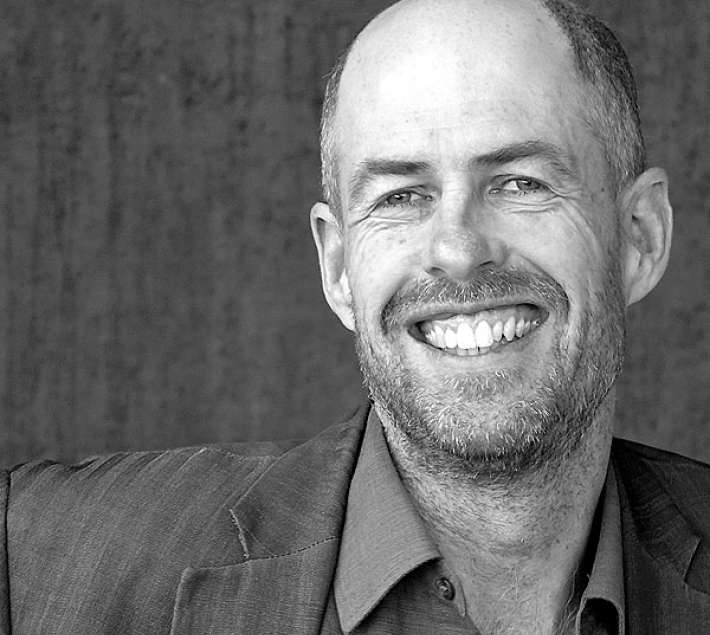An In Good Company podcast with Hamish Wilson, Co-Founder and Director of Wasafiri
Warzones, natural disasters, and the human craft of leadership: a conversation with Hamish Wilson
Let's be honest, leading right now isn't easy. We're all trying to keep up with the pace of change. But what happens when you turn up that dial and leave the corporate office to operate on the frontlines of war zones and natural disasters?
Latest listen
Hamish Wilson is a globally respected humanitarian and entrepreneur who uses his experience from South Sudan to Somalia to help leaders navigate complexity and change. He's earned honours such as the Queen's Medal for his work in Sierra Leone's Ebola crisis and the NATO Meritorious Service Medal for his service in Afghanistan. He's also co-founder of Impact’s sister company Wasafiri, Africa's leading systems change agency. Today, he helps senior leaders across sectors, from military commanders to corporate executives, to thrive in volatile, fast-moving environments.
In this episode, Hamish talks to Dan about:
- His experience and learnings from a career in humanitarian operations
- What it means to lead through complexity and crisis
- Trust, connection, and the human foundations of leadership
- Systems leadership and collective action
What have your experiences on the frontline taught you about leadership?
Well, it's been quite a journey. Over the years I've seen lots of different forms of leadership – the good, the bad and the ugly for sure. And it's made me realise that we have lots of preconceived ideas and notions about what leadership should look like.
Oftentimes we default to this idea that leadership should be some sort of heroic, commanding or ‘leading from the front’ kind of presence. But if I'm honest, in all of the places that I've worked over the years, real leadership for me has actually tended to look very different. And usually it's the people doing all the small, ordinary, hard things day in and day out. If I think about working in Uganda in a refugee camp, the real hero for me was a lady called Esther, and she was a project manager. She wasn't the big boss. She wasn't in charge. But you could tell that she had the ear of everybody. She had a sense of connection and real trust. People respected her.
And I think over time I've come to realise that leadership isn't about command and control. It is something else – something fundamentally human. People work better together, making the tough choices, living with the consequences, and particularly when it gets tough and the stakes are high.
What does leadership look like in these complex environments?
If I had to think of somebody who comes across as a good leader, I would be thinking about my old boss back in Somalia. He was the UK ambassador at the time, Matt Baugh. It was an extraordinarily complex environment. There were militias, there were terrorist groups. We had clans, international politics, African Union peacekeeping operations, the works. It's so hard to operate in these environments. Things are constantly changing all the time. It's extremely foggy. The stakes are high. It's extremely volatile. And yet, you have to act. You have to decide. You have to move forward. And I think this was one of his superpowers. […]
And I think this is where Impact’s framework for leadership action is extremely helpful. I think it helps people understand better how to notice and sense what's going on. It helps people understand better when and how to decide, how to learn and adapt, what to test and experiment with, how to move forward and then rinse and repeat. Because in such a fluid environment, it really is a cycle of what next, what next, how do I move forward.
And if I had to go a little bit deeper, I would say that the heart of the work underpinning that, as a leader, is about how you work with others. How do you build trust and connection with the people around you? How do you create that shared sense of alignment and direction? How do you help people learn and adapt and then adjust and pivot and shift? Particularly when things are changing, often with little notice. And so for me, this is some of the hard work of good leadership in very complex environments.
“I do think that we can often overlook how human the craft of leadership is. Fundamentally it’s about how you show up and how you connect with other people.”
Listen to the episode on Spotify
Read Hamish's article on leadership for complex times
Listen again
Head to our YouTube / Spotify channels to catch up on previous episodes, including…
050: Redefining resilience with Dr Alia Bojilova
Follow Impact on Spotify and subscribe to our channel on YouTube
